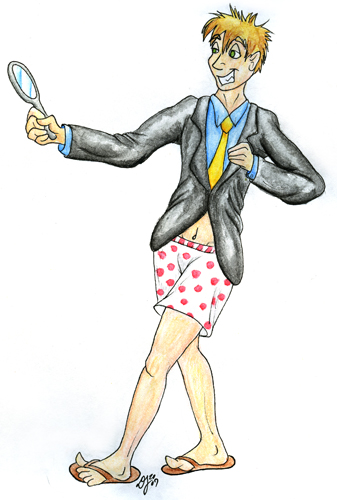Student narcissism on the rise

Dana Larson
Mar 27, 2007
Last updated on May 12, 2016 at 09:03 a.m.
Thousands of college students across the country think thoughts like, “If I ruled the world it would be a much better place” and “modesty doesn’t become me,” according to one study devoted to narcissism.
Today’s generation of college students have been deemed more narcissistic than their predecessors by five psychologists. Lead author professor Jean Twenge of San Diego University, calls them “Generation Me.” Her study of 16,475 students from across the country from 1982 to 2006 determined that students have become drastically more narcissistic.
“This is a generation unapologetically focused on the individual, a true Generation Me,” Twenge wrote in her book, “Generation Me: Why Today’s Young Americans Are More Confident, Assertive, Entitled-and More Miserable Than Ever Before.”
Twenge speculates that child-rearing is to blame, and parents should quit coddling their children because children are self-centered as it is. This eventually leads to a generation of students who see themselves as exceptional, and who set unrealistic goals for their future, according to her book.
Get The Daily Illini in your inbox!
“The individual has always come first, and feeling good about yourself has always been a primary virtue,” Twenge said in her book. “Generation Me’s expectations are highly optimistic: they expect to go to college, to makes lots of money and perhaps even to be famous.”
She says these expectations are dangerous when considering societal issues like competition in colleges and the work force, and the rising prices of housing and healthcare that may hinder these goals.
“This is a time of soaring expectations and crushing realities,” she said.
Gail Granberry, junior in LAS, tended to have the same thoughts as Twenge regarding the narcissitstic qualities of students today.
“Everyone has always been told they’re special, and people will do anything for their grades and GPA,” she said.
Twenge rejects the notion that this generation of students is more apt to volunteerism as more students are clearly volunteering than in past years. She said more students are more career-oriented than ever, and volunteering looks good on their resume.
Erin Stewart, junior in Education, agrees that students are more narcissistic. She said she notices it in the subtleties of everyday conversation.
“When I talk to people, they always find a way to relate it back to themselves,” Stewart said.
She also pointed out the difference between this generation of students and those of the ’60s that took to demonstrating for the good of a larger group of people.
“People now are more apathetic,” Stewart said, “Past generations were more concerned with what affects everyone, now they just care about themselves.”
Others remain skeptical of Twenge and her colleagues’ research.
Dr. Brent Roberts, professor of psychology at the University, was a reviewer of the study whose criticisms are still being reviewed by Twenge.
“One of the things I requested as a reviewer was to get a little more detail about the data,” Roberts said. “They weren’t very forthcoming initially with the data and where it came from.”
Roberts conducted a similar study that concentrated on students from the 1950s to the 1980s. In his study, he primarily focused on secular changes, or how culture has changed. He found the strongest correlation to be narcissism, and that the students were then too becoming increasingly narcissistic.
He explained that it is the researcher’s responsibility to gather all of the information they can find from previous studies in order to accurately present their information. Twenge and her colleagues failed to contact Roberts about his published study, which even used the same measure of narcissism, the Narcissistic Personality Inventory or NPI.
Roberts believes that Twenge’s claims that child-rearing is responsible for narcissism in college are merely speculations. He said she is in “book-writing mode.”
“There have been no studies I have seen that link child-rearing to adult narcissism,” Roberts said. “We don’t know why people are narcissistic.”
There is no doubt to Roberts that American culture has become more narcissistic as he points out Americans’ fascination with the rich and the famous. However, Twenge’s study needs more attribution for Roberts to be satisfied with her claims.
“If this data is right, which I don’t know if it is or not, then yeah, you guys are more narcissistic,” he said.





